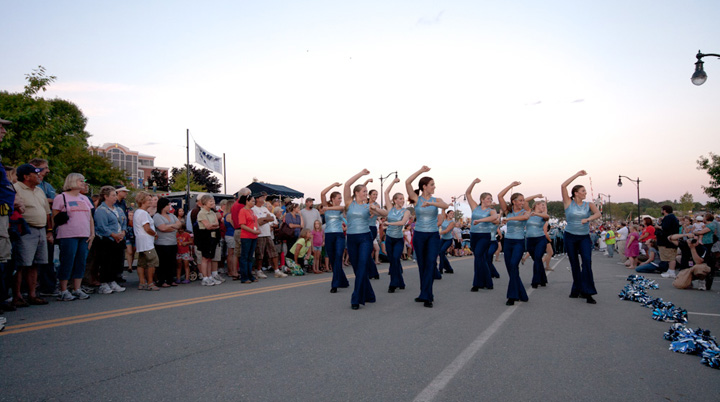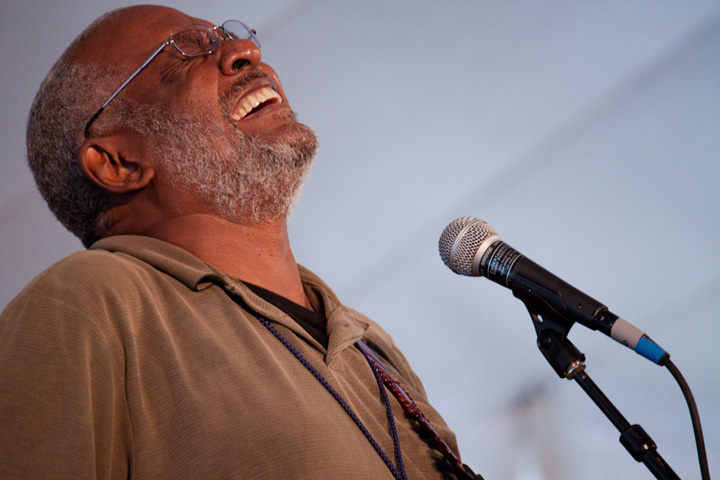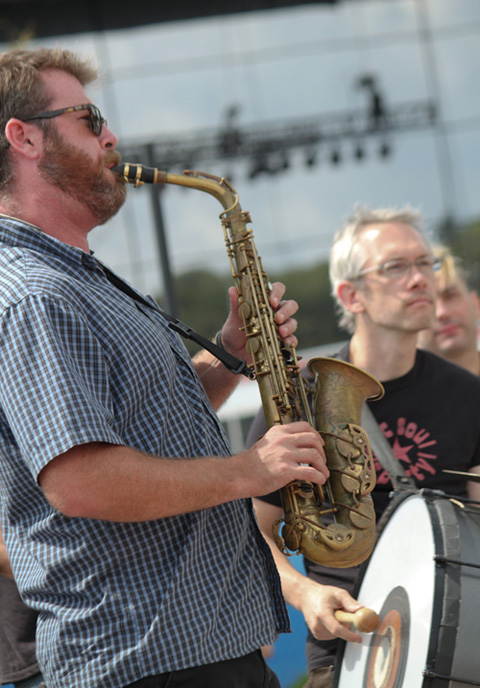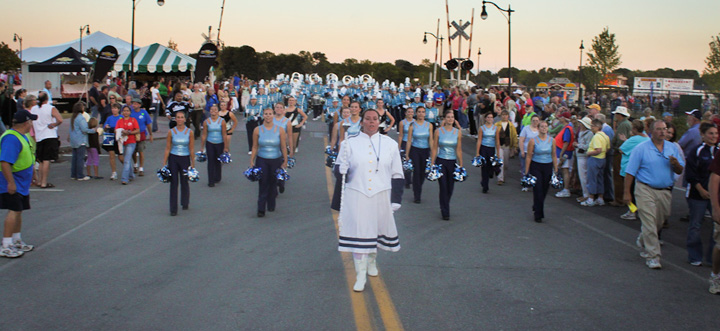For a number of years I’ve had three main pillars that I enjoy: web development, photography, and writing. Between my full-time job and a few projects I do on the side, I definitely keep my development interest going. I cover photography by going on day trips on the weekends; even though I don’t take as many photos as I did a few years ago, I still have the chance to explore and make my mind work in a creative way. Writing, however, is a different story; I haven’t focused on that lately, and I really miss it.
The month of November is National Novel Writing Month, known as NaNoWriMo. People who take part in NaNoWriMo strive to write a 50,000-word novel between November 1 and November 30. A few of my friends on Twitter are trying it out, and I wish them the best of luck. It’s a great challenge; as many writers say, the best way to improve your writing is to practice as much as you can.
I’ve never been much of a novel writer, though. One of my English teachers in high school told me that I did my best when writing concisely; I really struggle whenever I have to write anything over ten pages. I also haven’t written any real fiction since high school.
I might not have the determination to do NaNoWriMo, but I want to focus on writing in November. I’ve decided that I want to make it my goal to write something – anything – of at least 250 words every day in the month. It’s my EvDaWriMo, or every day of writing month. I might write a blog post over on our newly refreshed Sephone blog, a post at Another New World, a post here, or something on a couple of other ideas I have. I might even write some fiction. I’m not sure yet whether I’ll share everything I write, but the important part is that I just want to focus on writing for a bit.
Let’s go write!
The month of November is National Novel Writing Month, known as NaNoWriMo. People who take part in NaNoWriMo strive to write a 50,000-word novel between November 1 and November 30. A few of my friends on Twitter are trying it out, and I wish them the best of luck. It’s a great challenge; as many writers say, the best way to improve your writing is to practice as much as you can.
I’ve never been much of a novel writer, though. One of my English teachers in high school told me that I did my best when writing concisely; I really struggle whenever I have to write anything over ten pages. I also haven’t written any real fiction since high school.
I might not have the determination to do NaNoWriMo, but I want to focus on writing in November. I’ve decided that I want to make it my goal to write something – anything – of at least 250 words every day in the month. It’s my EvDaWriMo, or every day of writing month. I might write a blog post over on our <a href=”http://blog.sephone.com” target=”_blank”>newly refereshed Sephone blog</a>, a post at <a href=”http://www.anothernewworld.com” target=”_blank”>Another New World</a>, a post here, or something on a couple of other ideas I have. I might even write some fiction. I’m not sure yet whether I’ll share everything I write, but the important part is that I just want to focus on writing for a bit.
Let’s go write!a number of years I’ve had three main pillars that I enjoy: web development, photography, and writing. Between my full-time job and a few projects I do on the side, I definitely keep my development interest going. I cover photography by going on day trips on the weekends; even though I don’t take as many photos as I did a few years ago, I still have the chance to explore and make my mind work in a creative way. Writing, however, is a different story; I haven’t focused on that lately, and I really miss it.
The month of November is National Novel Writing Month, known as NaNoWriMo. People who take part in NaNoWriMo strive to write a 50,000-word novel between November 1 and November 30. A few of my friends on Twitter are trying it out, and I wish them the best of luck. It’s a great challenge; as many writers say, the best way to improve your writing is to practice as much as you can.
I’ve never been much of a novel writer, though. One of my English teachers in high school told me that I did my best when writing concisely; I really struggle whenever I have to write anything over ten pages. I also haven’t written any real fiction since high school.
I might not have the determination to do NaNoWriMo, but I want to focus on writing in November. I’ve decided that I want to make it my goal to write something – anything – of at least 250 words every day in the month. It’s my EvDaWriMo, or every day of writing month. I might write a blog post over on our <a href=”http://blog.sephone.com” target=”_blank”>newly refereshed Sephone blog</a>, a post at <a href=”http://www.anothernewworld.com” target=”_blank”>Another New World</a>, a post here, or something on a couple of other ideas I have. I might even write some fiction. I’m not sure yet whether I’ll share everything I write, but the important part is that I just want to focus on writing for a bit.
Let’s go write!For a number of years I’ve had three main pillars that I enjoy: web development, photography, and writing. Between my full-time job and a few projects I do on the side, I definitely keep my development interest going. I cover photography by going on day trips on the weekends; even though I don’t take as many photos as I did a few years ago, I still have the chance to explore and make my mind work in a creative way. Writing, however, is a different story; I haven’t focused on that lately, and I really miss it.
The month of November is National Novel Writing Month, known as NaNoWriMo. People who take part in NaNoWriMo strive to write a 50,000-word novel between November 1 and November 30. A few of my friends on Twitter are trying it out, and I wish them the best of luck. It’s a great challenge; as many writers say, the best way to improve your writing is to practice as much as you can.
I’ve never been much of a novel writer, though. One of my English teachers in high school told me that I did my best when writing concisely; I really struggle whenever I have to write anything over ten pages. I also haven’t written any real fiction since high school.
I might not have the determination to do NaNoWriMo, but I want to focus on writing in November. I’ve decided that I want to make it my goal to write something – anything – of at least 250 words every day in the month. It’s my EvDaWriMo, or every day of writing month. I might write a blog post over on our <a href=”http://blog.sephone.com” target=”_blank”>newly refereshed Sephone blog</a>, a post at <a href=”http://www.anothernewworld.com” target=”_blank”>Another New World</a>, a post here, or something on a couple of other ideas I have. I might even write some fiction. I’m not sure yet whether I’ll share everything I write, but the important part is that I just want to focus on writing for a bit.
Let’s go write!








